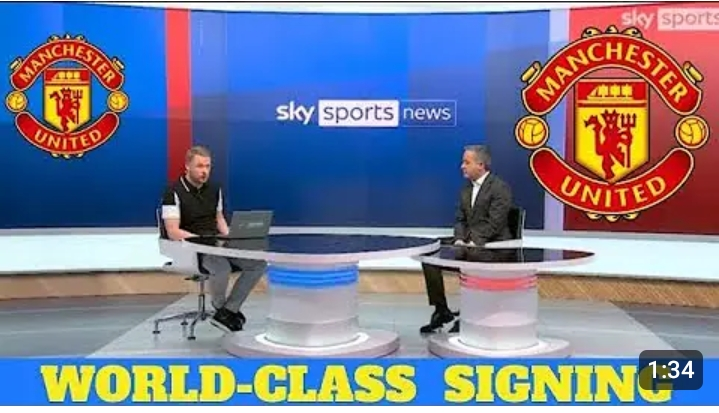
Manchester United Eyes £67m Benjamin Sesko as Viktor Gyokeres Alternative
Striker Market Competition Intensifies Between Premier League Giants
Manchester United faces a crucial decision point in their striker recruitment strategy as the competition for top attacking talent intensifies across the Premier League. The Red Devils find themselves in direct competition with Arsenal for several high-profile targets, creating a complex transfer scenario that could determine both clubs’ attacking fortunes for the upcoming season.
The striker market has become increasingly competitive, with multiple Premier League clubs recognizing the urgent need to strengthen their attacking departments. This heightened demand has created a challenging environment where clubs must develop multiple contingency plans to ensure they secure adequate firepower for their respective campaigns.
Gyokeres Preference Creates United Dilemma
Viktor Gyokeres has emerged as the primary target for both Manchester United and Arsenal, with the Swedish striker’s proven goal-scoring ability making him an attractive proposition for any ambitious club. However, recent developments suggest that Gyokeres has expressed a preference for joining Arsenal, potentially leaving United to explore alternative options.
The striker’s apparent preference for a move to the Emirates Stadium represents a significant setback for United’s recruitment plans, particularly given manager Ruben Amorim’s familiarity with the player from their time together at Sporting Lisbon. This personal connection had been expected to give United an advantage in negotiations, making the potential loss even more disappointing.
Arsenal’s apparent success in convincing Gyokeres to choose them over United demonstrates the continuing appeal of the North London club’s project and their ability to attract top-tier talent. The Gunners’ recent progress under Mikel Arteta has clearly enhanced their attractiveness to potential signings.
Benjamin Sesko Emerges as Viable Alternative
With Gyokeres potentially heading to Arsenal, Manchester United has identified Benjamin Sesko as their primary backup option, according to transfer specialist Ben Jacobs. The young Slovenian striker represents a compelling alternative, offering similar physical attributes and goal-scoring potential that could address United’s attacking needs.
Sesko’s profile aligns well with United’s recruitment strategy, combining youth with proven ability at the highest level. The RB Leipzig striker has demonstrated remarkable development in recent seasons, establishing himself as one of Europe’s most promising attacking talents through consistent performances in both domestic and European competitions.
The £67 million valuation placed on Sesko reflects his potential and current ability, positioning him as a significant investment that could provide both immediate impact and long-term value. This price point also demonstrates the premium attached to proven strikers in the current transfer market.
Strategic Implications and Squad Planning
The potential pivot from Gyokeres to Sesko illustrates the complex nature of modern transfer planning, where clubs must simultaneously pursue multiple targets while preparing for various scenarios. United’s contingency planning demonstrates professional recruitment practices that acknowledge the unpredictable nature of the transfer market.
Despite the continued presence of Rasmus Hojlund in the squad, United’s pursuit of additional striking options reflects their understanding that squad depth and competition for places are essential for sustained success. The Danish striker’s internal rating hasn’t diminished the club’s recognition that additional firepower is necessary.
Market Dynamics and Competition Effects
The overlapping target lists between United and Arsenal highlight the limited pool of elite strikers available in the current market. This scarcity creates intense competition between clubs, often resulting in inflated valuations and complex negotiation processes.
The situation also reveals how clubs’ relative attractiveness can influence player decisions, with factors beyond financial compensation playing crucial roles in determining final destinations. Arsenal’s current momentum appears to be providing them with advantages in direct competitions with traditional rivals.
Financial Considerations and Investment Strategy
The £67 million investment required for Sesko represents a substantial commitment to attacking reinforcement, demonstrating United’s willingness to invest heavily in addressing their striking needs. This financial commitment reflects the club’s understanding that goal-scoring ability often determines competitive success.
The pricing also indicates the premium attached to young, proven strikers who can provide both immediate impact and future resale value. This combination of factors makes Sesko an attractive proposition despite the significant financial outlay required.
Conclusion
Manchester United’s potential pursuit of Benjamin Sesko as an alternative to Viktor Gyokeres demonstrates adaptive transfer strategy in a competitive market. While losing out on their primary target would represent a disappointment, securing Sesko could provide similar long-term benefits while addressing their immediate striking needs. The success of either strategy will largely depend on the club’s ability to act decisively in an increasingly competitive transfer environment.

Leave a Reply